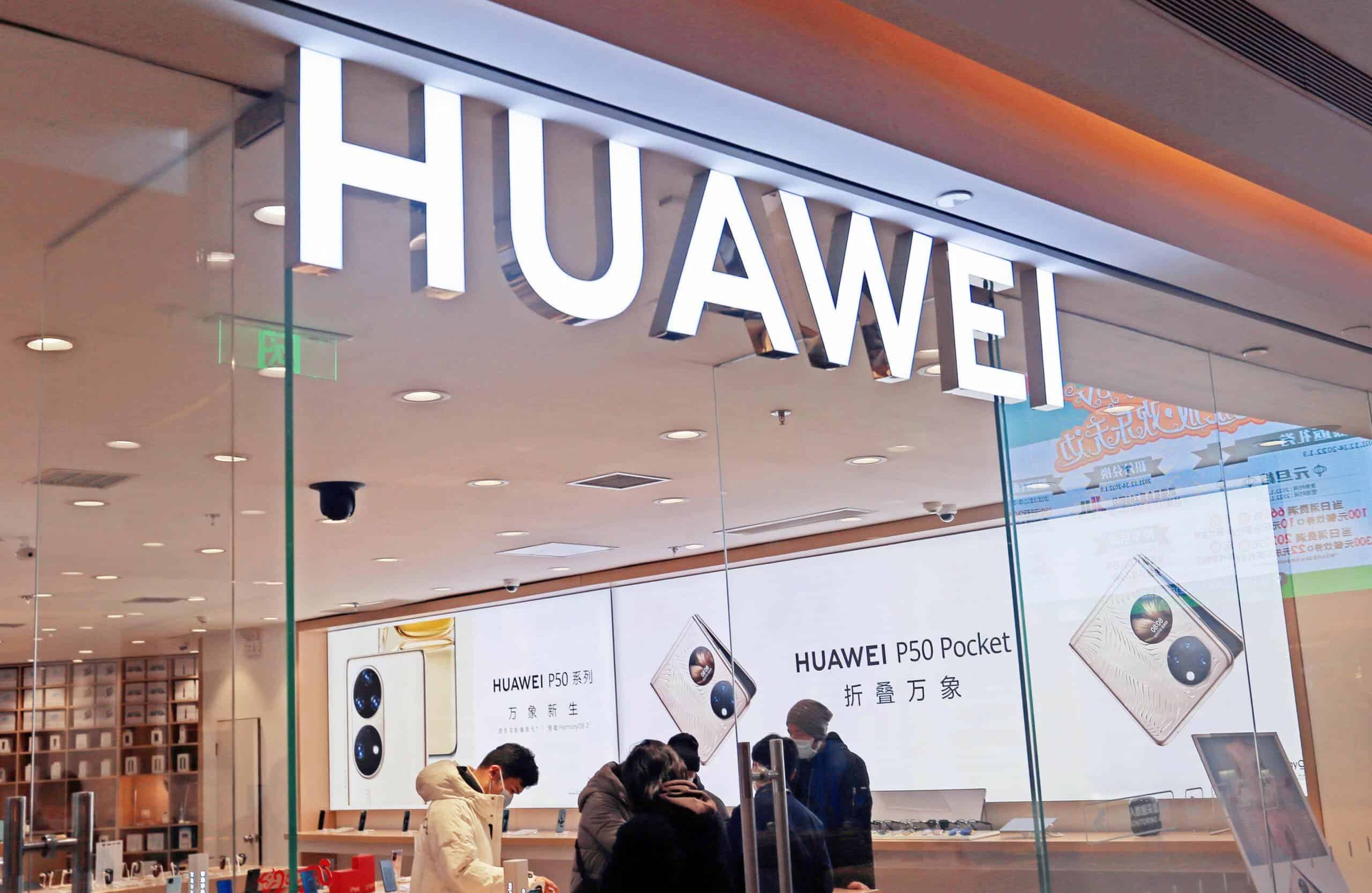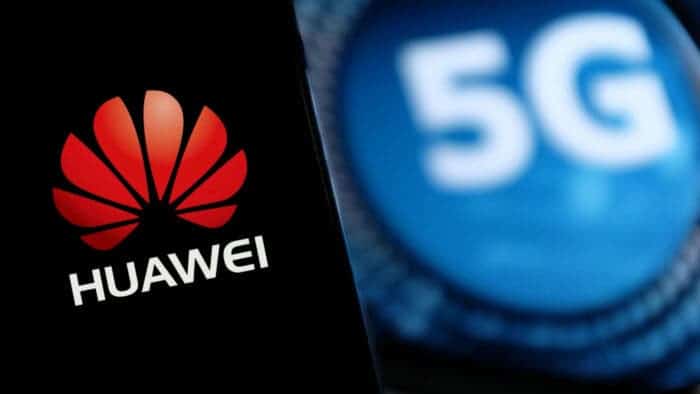A recent report from Bloomberg, citing data from the American Semiconductor Industry Association (SIA), has exposed Huawei’s covert semiconductor manufacturing operations, referred to as the “shadow production network.” This clandestine network plays a pivotal role in advancing China’s technological ambitions while circumventing international sanctions.
Huawei’s Secretive Semiconductor Network: A Challenge to Sanctions

According to SIA, Huawei has quietly acquired a minimum of two undisclosed factories in China. And is currently constructing at least three more. The financing for these ventures, estimated at approximately $30 billion. Primarily originates from the Chinese government and the Shenzhen local administration, where Huawei is headquartered.
What sets the company‘s approach apart is its ability to operate through proxy companies and pseudonyms. Effectively concealing its direct involvement in these manufacturing facilities. This covert strategy enables Huawei to bypass international sanctions. Enabling the company to acquire American equipment for the production of chips and other restricted materials.
Also, the U.S. Department of Commerce’s Bureau of Industry and Security, responding to inquiries from Bloomberg regarding the SIA report, has stated its vigilant monitoring of the situation and its readiness to take action if necessary. This includes the banning of several Chinese companies, not limited to Huawei. Notably, two entities within Huawei’s network, Fujian Jinhua Integrated Circuit Co. and Pengxinwei IC Manufacturing Co. (PXW), have also found themselves on this list.
In addition, the revelation of Huawei’s secret production network has set off alarm bells within the Biden administration. It is reported that the United States is actively considering the possibility of tightening export controls against China in response to these developments.
So, this unfolding situation underscores the complex interplay between national security concerns and the evolving landscape of global technological competition. As governments worldwide grapple with how to address such covert operations, Huawei’s shadow production network serves as a stark reminder of the challenges posed by entities determined to skirt international regulations in pursuit of their technological goals.
The potential implications of Huawei’s secret production network on the global technological competition and national security concerns:
- Huawei’s secret production network could give China a significant advantage in the global technological competition. China is already a major player in the semiconductor industry, and Huawei’s efforts to build its own production capabilities could further consolidate China’s position. This could make it more difficult for other countries, such as the United States, to compete with China in the development of new technologies.
- Huawei’s secret production network could also raise national security concerns. The US government is concerned that Huawei could use its technology to develop surveillance capabilities or to support other military applications. This could have a significant impact on the balance of power in the Asia-Pacific region and could make it more difficult for the United States to protect its interests in the region.
- The US government’s response to Huawei’s secret production network is likely to be complex and multifaceted. The government will need to balance its concerns about national security with its desire to avoid harming the global semiconductor supply chain. It is possible that the US government will impose additional sanctions on Huawei, or that it will tighten export controls on the sale of semiconductor equipment to China. However, the government may also choose to take a more measured approach, such as working with China to develop a framework for regulating the export of sensitive technology.
- The development of Huawei’s secret production network could lead to a more fragmented global semiconductor supply chain. If other countries follow Huawei’s lead and build their own secret production networks, it could make it more difficult for companies to get the semiconductors they need. This could lead to higher prices and shortages of semiconductors, which could impact the production of a wide range of products, from smartphones to cars.
- The development of Huawei’s secret production network could also lead to a new era of technological competition between the United States and China. The United States is already concerned about China’s growing technological capabilities. And Huawei’s secret production network is likely to further fuel these concerns. The United States may take steps to counter Huawei’s efforts, such as imposing additional sanctions or tightening export controls. This could lead to a new round of tit-for-tat measures between the two countries, which could have a negative impact on the global economy.
- The development of Huawei’s secret production network is also a reminder of the importance of trust in the global technology supply chain. If companies cannot trust that their suppliers are not selling sensitive technology to their adversaries, it could make it more difficult to do business and could lead to higher costs. This could have a negative impact on innovation and economic growth.
The outcome of this situation will have a significant impact on the global semiconductor industry and on the US-China technology rivalry. It will be interesting to see how the US government responds to Huawei’s secret factories in the coming months.
Here are some additional thoughts on the matter:
- The development of Huawei’s secret production network is a sign of China’s growing technological ambitions. China is determined to become a leader in the global semiconductor industry. And it is willing to invest heavily in order to achieve this goal.
- The US government’s response to Huawei’s secret production network will be closely watched by other countries. The outcome of this situation could have a significant impact on the global balance of power in the technology sector.
- The development of Huawei’s secret production network is a reminder of the importance of national security in the age of technology. Countries need to be vigilant about the security of their critical infrastructure, including their semiconductor supply chains.
Overall, the development of Huawei’s secret production network is a complex issue with far-reaching implications. It is a reminder of the increasingly important role that technology plays in national security and the need for countries to work together to ensure the security of the global technology supply chain.
Here are some possible scenarios for Huawei’s future:
Huawei’s future is uncertain in light of the US sanctions and its secret production network. The company has been facing increasing challenges in recent years. As it has been cut off from key suppliers of components and technology. The development of its secret production network is a sign that Huawei is determined to continue its growth. But it is unclear whether this will be enough to overcome the challenges it faces.
- Huawei could continue to grow, despite the challenges. The company has a strong track record of innovation and has a large market share in many countries. If it can successfully develop its own semiconductor production capabilities and find new suppliers of components and technology, it could continue to grow and become a leading player in the global technology industry.
- Huawei could be forced to scale back its operations. If the US sanctions continue and Huawei is unable to find new suppliers, it may be forced to scale back its operations or even exit some markets. This would be a significant setback for the company. But it would still be a major player in the Chinese market.
- Huawei could be acquired by another company. If Huawei’s future becomes increasingly uncertain, it may be acquired by another company. This could be a Chinese company, such as ZTE, or a foreign company, such as Samsung. An acquisition would allow Huawei to continue to operate and grow. But it would also mean that it would lose its independence.
The future of Huawei is difficult to predict. The company faces significant challenges, but it also has a strong track record of innovation and resilience. It is possible that Huawei will be able to overcome the challenges it faces and continue to grow. However, it is also possible that the company will be forced to scale back its operations or even exit some markets. Only time will tell what the future holds for Huawei.






Secret, subvert, skirt, proxy, clandestine liberal sprinkling of keywords lol
So basically its all about the US and their inferiority complex. Competition is ALWAYS good but bad for hegemony.
Sanction of cell phones based upon security concerns is laughable unless Huawei installed backdoor like the USA’s NSA. So far, there is absolutely no evidence of that. If Huawei and Chinese semi-conductors’ firm were able to make the Mate 60, those technology capabilities will be in high demand for supercomputer, for space station, for ultrahigh speed missiles, military applications. Yes, China will probably not be able to make the 3 nm chips for another 10 years. But, the current capabilities will be continuously developed and the following two scenarios will emerge:
1) Many nations will be able to have the confidence to buy Chinese equipment
(e.g., 5G communication, defense weapons) since they know that China has
penetrated US’s technology containment.
2) Many chip suppliers will be under pressure to sell semi-conductor equipment to
China because they know that it is only a matter of time for China to develop
its own supplier chain for the semi-conductor industry. Selling Chinese these
equipment while they can will earn income from China that may actually slow
down China’s own development due to competition.
The Washington elites would like the Chinese to be their slaves who can only supply
cheap goods. But, they forgot that containment had never worked on China.
Despite USA’s technological sanctions, China has developed its own GPS, space
station, ultrahigh speed missiles, EV batteries, and now the 5-7 nm chips and its
design capabilities. It is time to give up the containment strategy.